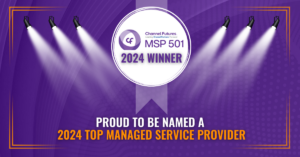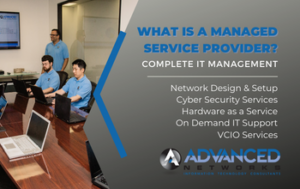Almost any company today depends on IT for some of its commercial operations. With so much dependency on IT and computer networking, even small businesses now have to be wary of security threats. However, there’s a way you can do to fortify the security of your business. Here are 5 cybersecurity tips from IT consulting firms in Los Angeles to help strengthen your cyber defenses:
1. Backups
The foundation of security against both cyber attacks and disasters is the backup. Data you don’t backup is data you don’t want. Consider the data used in your company. If you lost that data, would it cost your business in terms of time or money? If so, you had better back it up.
In fact, the cost of storage has fallen so much that for most companies, and especially for small businesses, buying the storage you need should not be a cost issue.
Remember, however, that local backups may be lost if you suffer a disaster such as fire or flood. Therefore, you need to have a backup strategy that includes both local (accessible faster and more easily) backups and offsite backups that are safe from disasters at the site.
2. Password Strength
Poor password practices cost businesses a lot of money. For greater password strength, use long passwords and include a variety of characters such as numbers and symbols, as well as both uppercase and lowercase letters. Don’t tolerate stale passwords. Change passwords on a regular basis, at least every three months. Do not share passwords.
3. Antivirus and Malware Software
Ensure your business computers and network are safe by using antivirus programs and malware tools. These are not a “fit and forget” solution. The malware and virus definitions need to be updated regularly, and the programs themselves must be kept up-to-date.
4. Operating Systems
New weaknesses and exploits for Windows, MacOS and Linux/Unix are being found every day. Therefore, you need to make sure your laptops, desktop computers, and servers are kept up-to-date. IT consulting firms in Los Angeles advise that any applications your business uses also need to be kept up-to-date to prevent old vulnerabilities that can leave your organization open to hackers.
5. Mobile Devices (BYOD)
With the proliferation of mobile devices, such as phones, tablets, and laptops, it is more and more common for staff to use the same devices for work and personal business. This can create security holes for your business systems and a way for your company data to be lost if a device is stolen or lost. Apply the same rules regarding updates, antivirus, and passwords to BYOD. Use a mobile device management (MDM) system to help manage and mitigate the security pressures raised by BYOD and mobile devices.
You can reduce the security risks for your business by following the tips above. A comprehensive corporate security strategy involves many other points, however. Advanced Networks is one of the leading IT consulting firms in Los Angeles that work with businesses like yours on this very challenge. Contact us now for your business security.




